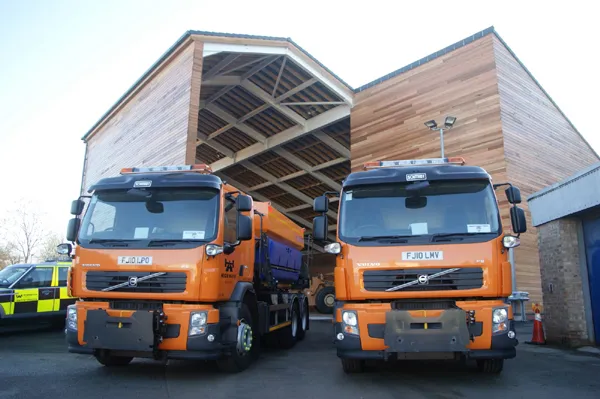The recent spate of bad weather conditions across the northern hemisphere has paralysed transport in many countries. In the US, much of northern Europe and parts of China, traffic has ground to a halt as a cold winter has resulted in heavy snowfalls in many areas. Minor roads remained blocked for some time and even major highways were badly affected, with vehicles having to be abandoned until roads could be reopened.
February 23, 2012
Read time: 3 mins
The recent spate of bad weather conditions across the northern hemisphere has paralysed transport in many countries. In the US, much of northern Europe and parts of China, traffic has ground to a halt as a cold winter has resulted in heavy snowfalls in many areas. Minor roads remained blocked for some time and even major highways were badly affected, with vehicles having to be abandoned until roads could be reopened. In many instances, similar complaints have been made by the travelling public, that road authorities should have prepared better for winter conditions. Even in countries that regularly experience tough winter conditions, snowfall levels have been high and transport has been worse affected than normal.
Road authorities have been quick to claim that such bad weather could not have been anticipated and that stocks of grit and salt were in line with expected needs and requirements. It has also been made clear that such snowfall has not been seen for 20 years in some countries and that investing in a huge fleet of snowplough vehicles that would have been standing idle since the last period of such bad weather, would have been a poor use of funds.
In some countries where such snowfall is unprecedented, the shortcomings of driver ability have been clear. Many drivers have been unused to such conditions and have struggled to cope on roads made slippery and treacherous with snow and hidden ice patches. Some of these road users have unfortunately learned to their cost in the need to slow down, increase breaking distances and to anticipate danger. And even experienced drivers have found roads difficult and dangerous. It is no surprise that accidents have abounded.
Now that the worst of the snow has abated however, the transport problems will not soon dissipate.
This is because water ingress into cracks in road surfaces can cause localised pavement failure through the freeze thaw process. Where cracks exist before cold weather, potholes will appear in many instances once the snow and ice has melted.
For the road user this means that routes have to be negotiated with care, to avoid vehicle damage or even accidents. And for road authorities, it means that budgets have to be carefully managed to ensure that necessary repairs can be carried out.
What the bad weather also exposes however is that many road links have been poorly built in the first place. Constructed cheaply, quickly and without meeting required tolerances in many instances, too many highways fail the test of bad weather. This is as much a result of poor planning and bad management on the part of highway authorities as it is of poor workmanship on behalf of some contractors. While some localised problems should be expected in the aftermath of severe winter weather, a spate of potholes reveals clearly that roads were not built properly in the first place. This wastes resources, budgets and time for those affected by subsequent delays for necessary repairs.
Road authorities have been quick to claim that such bad weather could not have been anticipated and that stocks of grit and salt were in line with expected needs and requirements. It has also been made clear that such snowfall has not been seen for 20 years in some countries and that investing in a huge fleet of snowplough vehicles that would have been standing idle since the last period of such bad weather, would have been a poor use of funds.
In some countries where such snowfall is unprecedented, the shortcomings of driver ability have been clear. Many drivers have been unused to such conditions and have struggled to cope on roads made slippery and treacherous with snow and hidden ice patches. Some of these road users have unfortunately learned to their cost in the need to slow down, increase breaking distances and to anticipate danger. And even experienced drivers have found roads difficult and dangerous. It is no surprise that accidents have abounded.
Now that the worst of the snow has abated however, the transport problems will not soon dissipate.
This is because water ingress into cracks in road surfaces can cause localised pavement failure through the freeze thaw process. Where cracks exist before cold weather, potholes will appear in many instances once the snow and ice has melted.
For the road user this means that routes have to be negotiated with care, to avoid vehicle damage or even accidents. And for road authorities, it means that budgets have to be carefully managed to ensure that necessary repairs can be carried out.
What the bad weather also exposes however is that many road links have been poorly built in the first place. Constructed cheaply, quickly and without meeting required tolerances in many instances, too many highways fail the test of bad weather. This is as much a result of poor planning and bad management on the part of highway authorities as it is of poor workmanship on behalf of some contractors. While some localised problems should be expected in the aftermath of severe winter weather, a spate of potholes reveals clearly that roads were not built properly in the first place. This wastes resources, budgets and time for those affected by subsequent delays for necessary repairs.








